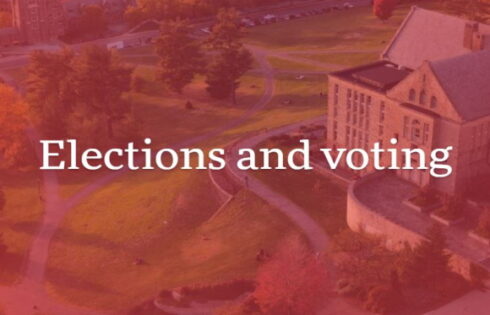Conservatives regularly denounce the silencing of right-leaning voices on campus, as well they should; but every so often a liberal speaks up, as well, providing a refreshing contrast to groupthink and standing up for free speech rights at universities everywhere.
At The Daily Princetonian, student Rohit Dilip recently argued: “Let conservatives speak.” Dilip, a physics major, notes his commendable habit of attending debates and “sit[ting] on the side opposite the one I agree with.” As he writes: “It’s a rare opportunity, in an ideologically polarized environment, to force myself into others’ shoes and question my own opinions, without fear of backlash or judgment.”
Recent debates in the school senate, however, have left Dilip frustrated: “Many Senate debates for the past few months have ended similarly –– with Whig members collectively hissing at Clio speakers until Clio speakers are effectively censored.”
“Then, collectively, we liberals can feel content in knowing that the evil forces of conservatism have been beaten back another day,” he adds.
This phenomenon is a “microcosm” of a larger campus problem, Dilip writes: “Silenced conservatism.” Campuses, Dilip argues, “lean predominantly liberal, and Princeton is no exception. Increasingly, liberals on campus resort less to reasoned argumentation and more to rhetoric and emotional outrage to push back against ideas we dislike.”
“By relying on groupthink to shut down conservatism, we liberals lose the opportunity to explore the nuances and contours of conservative arguments,” he argues.
Shouting down Clio speakers may be satisfying. But if the goal of intellectual exchange is pedagogy and if we value the diversity of political viewpoints we encounter, then intimidating the other side of the aisle isn’t a victory. Similarly, anyone who leaves a discussion feeling bullied or attacked is unlikely to change their mind or be open to liberal ideas.
Further, racist and sexist conservatives certainly exist. But this typically isn’t the brand of conservatism that one encounters at Princeton. There’s an important distinction between denouncing explicit racism and sexism and having an open discussion with someone when you find their views problematic. The latter reflects legitimate political thought and allows conservatives to challenge liberal viewpoints. Without considering conservative ideas, liberal students can never learn to properly defend their own ideas or engage with others’ beliefs. This becomes particularly salient when we leave Princeton, and liberals no longer necessarily have the advantage of numbers. From a purely selfish perspective, it’s important to engage with opposing viewpoints and learn how to effectively argue against them.
“In the past, I’ve been all too guilty of contributing to the silencing of conservatism,” Dilip argues. “These actions come at a cost. To push back against conservatism through censoring conservative thought chills further debate and deprives liberals of the opportunity to thoroughly challenge conservative arguments.”
“The objective of political discourse should not be satisfaction over having “beaten” our opponents; rather, the goal should be to listen and to express one another’s viewpoints in a respectful and productive context,” he says.
Like The College Fix on Facebook / Follow us on Twitter




Add to the Discussion